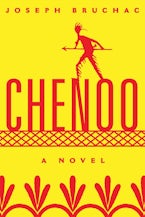- Home
- American Indian Literature and Critical Studies Series
- fiction
- social science
- Watermelon Nights
Watermelon Nights
by Greg Sarris
Afterword by Reginald Dyck
Published by: University of Oklahoma Press
Imprint: University of Oklahoma Press
456 Pages | 6 x 9
$26.95
$21.95
In Watermelon Nights, Greg Sarris tells a powerful tale about the love and forgiveness that keep a modern Native American family together in Santa Rosa, California. Told from the points of view of a twenty-year-old Pomo man named Johnny Severe, his grandmother Elba, and his mother, Iris, this intergenerational saga uncovers the secrets—and traumatic events—that inform each of these characters’ extraordinary powers of perception. First published in 1998, Watermelon Nights remains one of the few works of fiction to illuminate the experiences of urban Native Americans and is the only one to depict the historical conditions that shape a tribe’s rural-to-urban migration.
As the novel opens, Johnny is trying to organize the remaining members of his displaced California tribe. At the same time, he is struggling with his own sexuality and thinking about leaving his grandmother’s home for the big city. As the novel shifts perspective, tracing the controversial history of the Pomo people, we learn how the tragic events of Elba’s childhood, as well as Iris’s attempts to separate herself from her cultural roots, make Johnny’s dilemma all the more difficult. In the end, what binds both family and tribe together is a respect—albeit at times reluctant—for the traditions that have withstood so many challenges.
This new edition of the novel features a revised preface by the author and an afterword by Reginald Dyck, who identifies broader contexts important to our understanding of the novel, including tribal sovereignty, federal Indian policy, and the effects of historical trauma. Gritty yet rich in emotion, Watermelon Nights stands beside the works of Louise Erdrich, Stephen Graham Jones, and Tommy Orange.
As the novel opens, Johnny is trying to organize the remaining members of his displaced California tribe. At the same time, he is struggling with his own sexuality and thinking about leaving his grandmother’s home for the big city. As the novel shifts perspective, tracing the controversial history of the Pomo people, we learn how the tragic events of Elba’s childhood, as well as Iris’s attempts to separate herself from her cultural roots, make Johnny’s dilemma all the more difficult. In the end, what binds both family and tribe together is a respect—albeit at times reluctant—for the traditions that have withstood so many challenges.
This new edition of the novel features a revised preface by the author and an afterword by Reginald Dyck, who identifies broader contexts important to our understanding of the novel, including tribal sovereignty, federal Indian policy, and the effects of historical trauma. Gritty yet rich in emotion, Watermelon Nights stands beside the works of Louise Erdrich, Stephen Graham Jones, and Tommy Orange.
Greg Sarris is author of the anthology Keeping Slug Woman Alive: A Holistic Approach to American Indian Texts, the novel Watermelon Nights, and scripts for screen and stage. He is Chairman of the Federated Indians of Graton Rancheria and holds the Endowed Chair in Native American Studies at Sonoma State University.
Reginal Dyck is Professor of English at Capital University. His research and writing focus on the work of Native American authors, including Greg Sarris.
“While intersectionality operates at the systemic level, showing how systems confront individuals, literature operates at the individual level, showing how individuals confront systems. Native American literary works like Watermelon Nights challenge expectations about individuality, systems, and even what is meant by confrontation. To be true to his characters, Sarris offers none of the consolations of a showdown, a hero’s journey, or a happily ever after. He offers the stories of a people who lived here, took care of the land, told stories, and remain here, often overlooked even as their land is “acknowledged.” Watermelon Nights is an important American novel and an increasingly relevant work for resisting a political and cultural economy that privileges protest and encourages forgetting for the sake of belonging.”---Los Angles Review of Books
“[Watermelon Nights] is a gritty and powerful book that deserves rediscovery.”— Arkansas Democrat-Gazette












